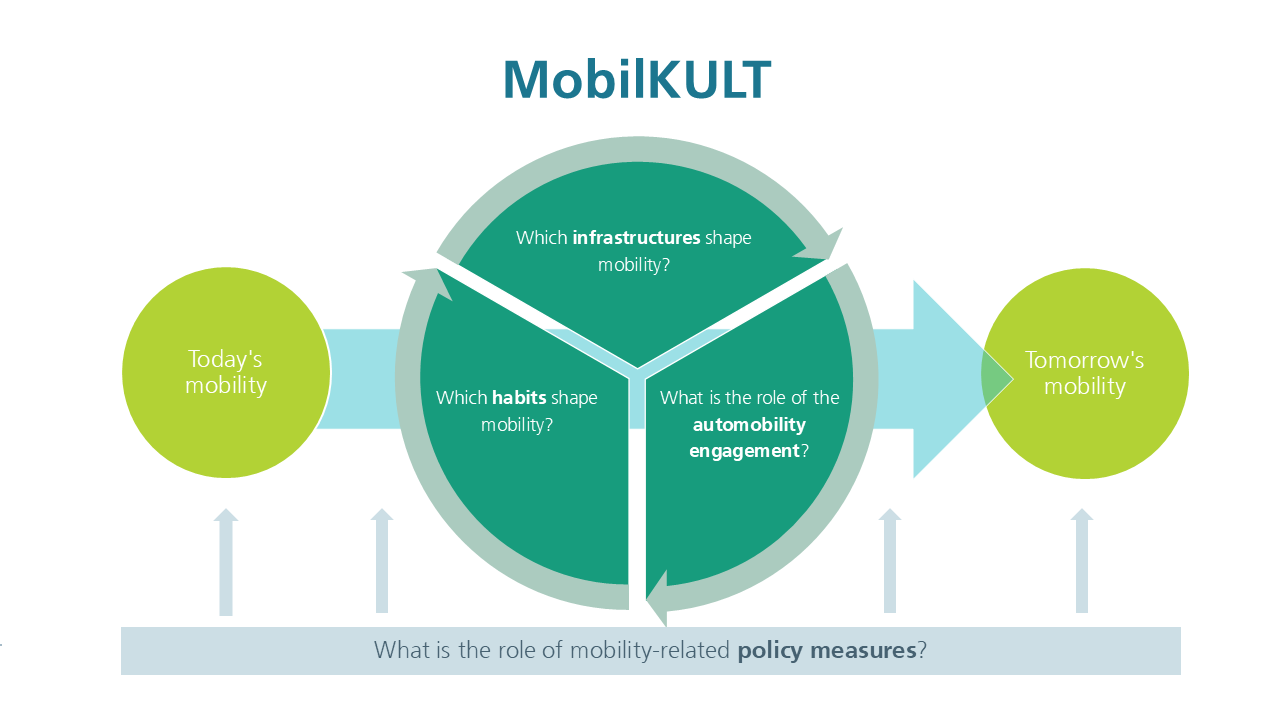Panel study of mobility habits in the German states of Baden-Württemberg and Mecklenburg-Western Pomerania (MobilKULT)
The MobilKULT project investigates mobility habits and whether these are changing in the German states of Baden-Württemberg and Mecklenburg-Western Pomerania. Our objective: We want to gain a better understanding of how habits, existing infrastructures and cultural aspects interact with regard to mobility. We are also interested in what people think about policy measures in the field of mobility. We want to find out how to make mobility more sustainable.
MobilKULT therefore conducts surveys at regular intervals. We always talk to the same people and ask them about their attitudes toward and opinions on infrastructures, policy measures, and the car culture. We also ask them about their habits. This approach enables us to gauge changes and correlations.
About 2,500 people take part in each round of the survey. Those selected are representative for the population in the German states of Baden-Württemberg and Mecklenburg-Western Pomerania. This makes it possible to draw general conclusions from our survey.
